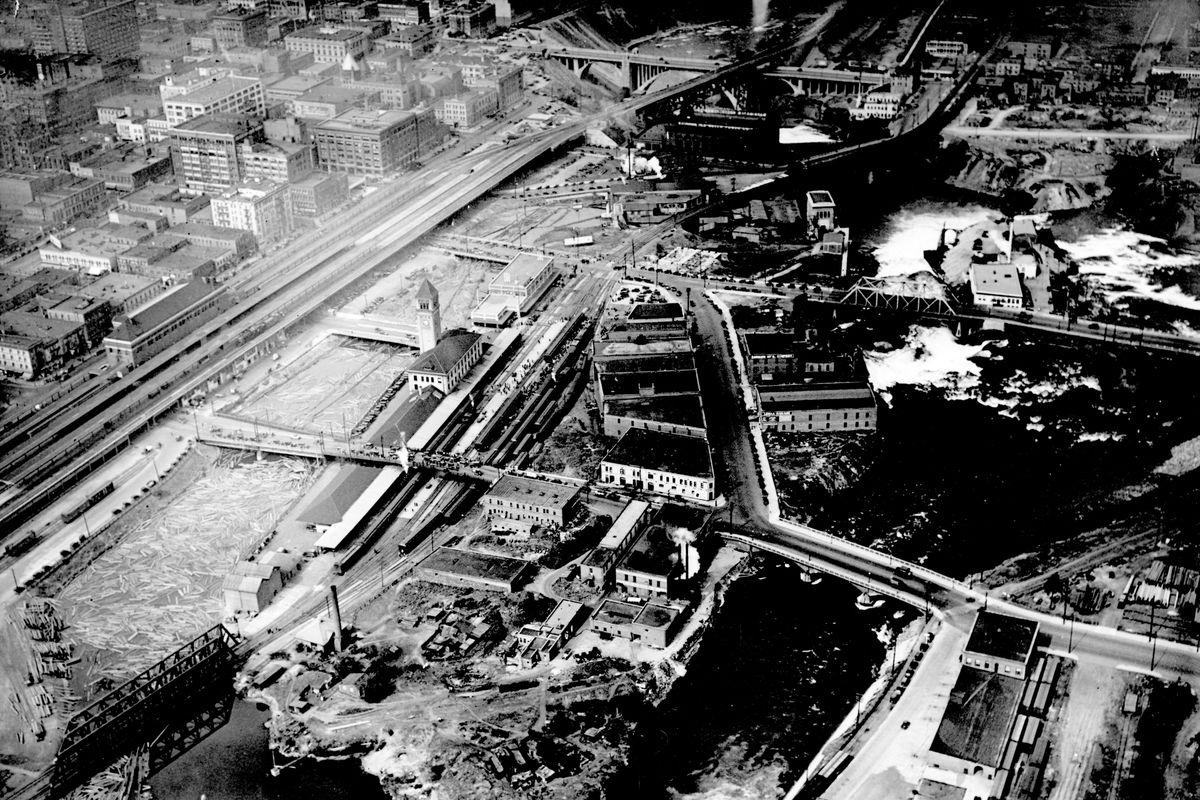Then and Now: Havermale Island

The Rev. Samuel Havermale was a Methodist preacher, adventurer and businessman. He was born in Maryland in 1824 and later assigned to serve the church in Walla Walla in the Washington Territory.
While riding to Colville in 1875, the preacher stopped and gave a sermon in tiny Spokan Falls, as it was called, in May 1875. He fell in love with the waterfalls and prairie lands around them.
In November, Havermale moved his family to Spokane and filed a homestead claim on 120 acres that included the islands in the middle of the Spokane River, where he intended to live. The Havermale family was one of the first five white families here.
In the spring of 1877, the few dozen residents of the town by the falls heard that the Nez Perce Tribe was preparing for battle. The nearby Native tribes had been brutally defeated by the U.S. Army at Four Lakes, near Cheney, in 1858. And after the Army slaughtered the horses of the Spokane, Coeur d’Alene and Palouse tribes, the settlers were mostly left alone.
But the Nez Perce had killed settlers in the Salmon River area of Idaho and settlers feared more raiding parties, not knowing if the local tribes might join in. So everyone in town fell back to Havermale’s island, where a wooden bridge was the only access. Other frontier families sought refuge there and a contingent of soldiers camped nearby. But no attack ever came. Other Army units were sent after Chief Joseph and his Nez Perce warriors in the Bitterroot Mountains that fall.
After the hysteria faded, Havermale built Spokane’s first Methodist church in 1879 at the corner of Sprague and Washington. He preached there for a couple of years, then left the pulpit and built a flour mill, which eventually would grind hundreds of barrels a day. The former minister was on the first city council in 1881.
Havermale eventually sold his real estate on the island. Some to railroads that would stop at Great Northern depot, opened in 1902. Warehouses and businesses filled the island from the 1880s until all was removed for Expo ’74.
The legacy of heavy industry on the island has led to clean-up projects and soil removal before the Riverfront park redevelopment, passed by voters in 2014.
Havermale died in 1904.